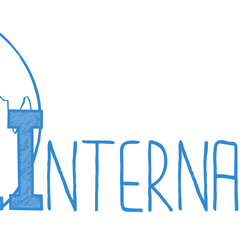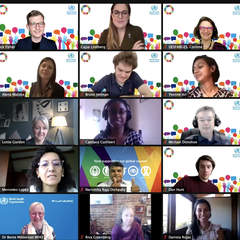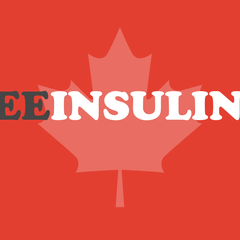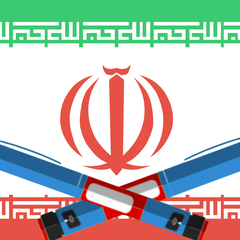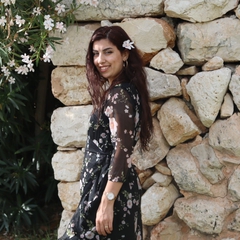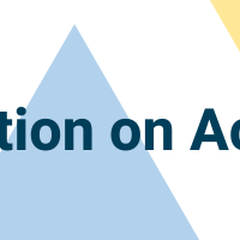
Representing Latin America’s Insulin Access Needs at the World Health Organization Workshop
28 Sep 2020, 4:55 p.m. in Global Stories by Daniela Rojas
Access to insulin has been and remains the only way a person living with type 1 diabetes can survive. Whenever I think about this, it seems to me that almost a hundred years after insulin was discovered it should be obvious to everyone that people living with this condition should be able to access it without any hindrance.
Sadly, this is so far from the reality. According to the World Health Organization (WHO), 40 of the 80 million people with diabetes who need insulin cannot get it because their country’s health system cannot afford it, and less than 50% of low-income countries have general availability of insulin in the public sector. This does not only seem unreal, but it is unfair, absurd and shameful.
I was invited as a representative of T1International and of my country to be a part of the week-long World Health Organization (WHO) Virtual Multi-stakeholder Workshop on Insulin Access. I presented at the September 21st session, “Insulin, Impossible. Changing the Game to save Lives”, and spoke about the situation in Latin America regarding access to insulin and type 1 diabetes supplies.
During my talk, I shared how Latin America is often described as a region filled with contrasts when it comes to accents, food, landscapes and natural resources, and also when it comes to access to insulin. Unfortunately, the contrasts when it comes to access to insulin can be difficult to hear.
I shared how in the Latin American region, we have countries that provide their type 1 diabetes population with everything they require to properly manage their condition, including not only access to insulin and supplies for daily management but also technology and diabetes education. However, other countries might not have access to technology but do make sure their population has access to insulin, test strips and glucometers. Still other countries are unable to cover any of the costs of medicine and supplies for people with diabetes.
Countries such as Costa Rica, which is where I am from, make sure people get insulin, test strips glucometers, and appointments with endocrinologists every four months. I made this clear in order to emphasize how different it can be for our neighbors in Panama and Nicaragua, as they get access to insulin but not continuously and, in some cases, they still have to pay for it out of pocket at cheaper prices if not available through their health care system. Having to buy insulin at pharmacies at high prices has a financial impact on patients and families, making it very difficult to manage their condition.
Countries such as Venezuela face many various challenges with insulin and supply access. At times, patients receive insulin that has not been properly labelled, which makes it extremely dangerous for people to use. Other times, some hospitals have to ask for help from other hospitals to see if they can provide insulin for their patients, which is not always possible.
Bolivia is currently unable to provide insulin, glucometers or test strips via their health care system, which means people always have to pay for their treatment. Due to the COVID-19 situation, finding these things at pharmacies or elsewhere can be a challenge.
COVID-19 was another important topic addressed throughout the entire week. I shared how it has affected our community in various ways. Aside from the lack of insulin provision from public health systems, people living with type 1 diabetes have been unable to have follow-ups with their health care providers. In addition, the negative impact of the virus on peoples’ personal finances makes it even more strenuous or impossible to pay for insulin out of their own pocket. This raises serious concerns for the diabetes community in the near future.
I hope my message was loud and clear about the fact that Latin America is in the need of an urgent change. How it is not possible that in the year 2020 people are still at risk because governments are not prepared to understand the urgency of insulin for people with type 1 diabetes in order to survive, or that they are unable to provide it? It takes a toll on both the physical and mental health of people with diabetes, their families and loved ones. I firmly sustain that if we manage to educate not only the type 1 community, but also our governments and the general population, we will truly have a chance at changing our current situation for the best.
On September 25th, the final day of the workshop, I joined the panel “Rewriting the Insulin Story – Access for Everybody”, alongside Elizabeth Pfiester from T1International, Emma Klatman from Life for a Child, and Molly Lepeska from Health Action International. I felt honored to share this space with people living with diabetes that are truly committed to raising their voice to change the lives of those of us living with type 1 diabetes. They are not afraid to stand up for what they believe to make sure there is justice for the diabetes community around the world.
Throughout the entire week of the workshop, participants listened about the reality regarding access to insulin around the world. Although it was clear how much work needs to be done, I felt hopeful. This is a process that requires a shared effort, and it is not about what I can do, but about what we can do to make accessible insulin a reality for all.
I felt empowered that the voices of those of us living with type 1 diabetes were respectfully listened and taken into account by the WHO. As Elizabeth noted: Patients have power. Being able to represent my country made her words feel real, and it had tremendous value for me.
I will keep raising my voice to make sure the changes that are needed become a reality. I will keep on pushing, asking the uncomfortable questions, taking a stand and raising my voice to make sure insulin is treated as a right – not a privilege – for those living with type 1 diabetes not only in Latin America but throughout the entire world.




